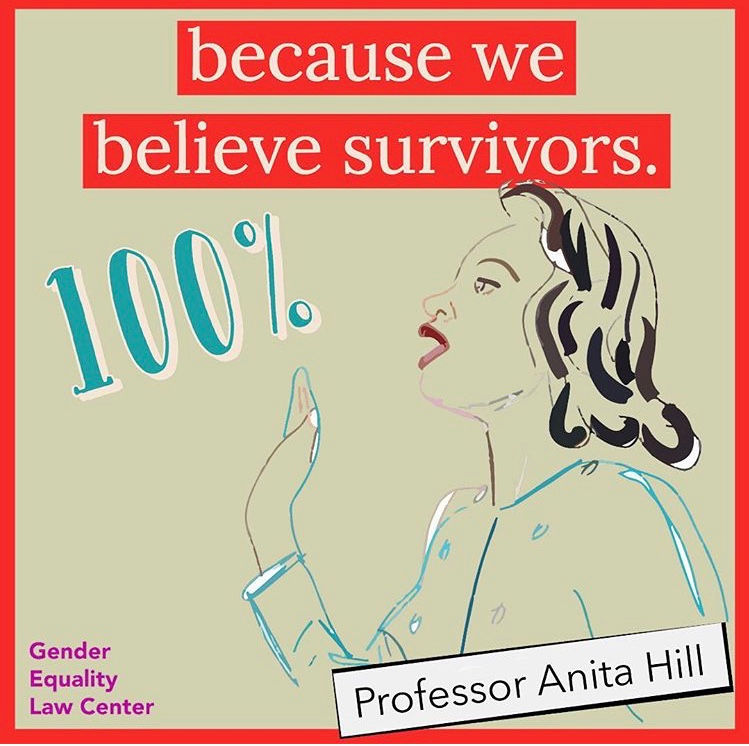New York Passes Sexual Harassment Bills Showcasing the Structural Changes We Need After #MeToo
- Kathryn Evans and Lauren Betters
- Jul 30, 2019
- 3 min read
In June, the New York State Legislature passed a set of amendments to the New York State Human Rights Law, providing stronger protections for women, LGBT individuals, and all other classes protected under the law. The Gender Equality Law Center worked with coalitions of employment lawyers, women’s rights advocates, and other organizations to support this progressive change for all New Yorkers, which Governor Cuomo is expected to sign into law soon.

The bill amends the State Human Rights Law to apply to all employers in the state, including those with only one employee (previously the law only covered employers with four or more employees), and all state and local governments. It will also protect anyone providing services in the workplace, including independent contractors, vendors, and consultants, from discrimination. The standard under the state law, which has generally been interpreted similarly to that of the high burdens under Title VII – the federal law that protects employees from discrimination – will now be construed independently and narrowly to significantly deter discrimination.
New York employees now have greater protections against discrimination, including awards of punitive damages, which previously were only available in housing discrimination cases, and are now available in cases of employment discrimination, unless the employer is the state or local government. Where courts formerly had the discretion to award attorney’s fees only in housing discrimination and sexual harassment cases, courts must also now award fees to any successful plaintiff in employment discrimination cases. This change will have the effect of bridging the gap in access to justice, particularly for low wage workers who often cannot afford to hire an attorney. Furthermore, mandatory arbitration clauses will not be enforced for any claims of discrimination under the Human Rights Law, and non-disclosure agreements in settlements for any discrimination claim will only be enforced if the complainant insisted on the clause. That means employees who wish to protect their privacy can do so, but employers cannot silence employees who have faced discrimination or harassment.
The new law also helps to chip away at the Faragher-Ellerth defense, which has enabled employers to escape liability in discrimination cases if they “exercised reasonable care to prevent and correct promptly any discriminatory harassing behavior, and . . . the plaintiff employee unreasonably failed to take advantage of any preventive or corrective opportunities provided by the employer.” Once this new bill becomes effective, whether or not an employee complains about the discrimination to the employer will no longer be dispositive to the employer’s liability.

The new amendments also add a provision prohibiting employers, employment agencies, and unions from subjecting employees to harassment based on any of the fifteen protected categories, which include sex, gender identity, gender expression, and sexual orientation, as well as status as a victim of domestic violence victim, and marital and familial status. The law defines harassment as “subject[ing] an individual to inferior terms, conditions or privileges of employment because of the individual’s membership in one or more of these protected categories.” That is, the conduct no longer needs to be “severe or pervasive” to qualify as harassment, but does need to be more than what a reasonable person would consider “petty slights or trivial inconveniences.” This lowers the bar for what is considered harassment, mirroring the standards under the progressive New York City Human Rights Law.
Lastly, victims of sexual harassment gained greater protections, specifically. That is, those who experience sexual harassment will now have three years to file a complaint with the New York State Division of Human Rights, compared with the one-year limit for all other discrimination claims. Further, all employers must hand out a written sexual harassment policy to each employee when they are hired, and again at the yearly sexual harassment prevention training. The Division will be conducting studies every four years on the effectiveness of their anti-sexual harassment guidance and updating it accordingly.
GELC supports this legislation, which holds employers accountable for addressing all forms of sexual harassment and discrimination across all sectors and workplaces – this is critical to uproot the systemic inequities that women and LGBT/GNC people face in the workplace, particularly for people of color. Survivors will be given the necessary time to report complaints and seek the justice they deserve. On the same day the legislature passed these bills, it also passed a bill to extend the statute of limitations for rape and criminal sexual misconduct cases, five years to twenty- and ten-year limits for second- and third-degree violations, respectively.




























